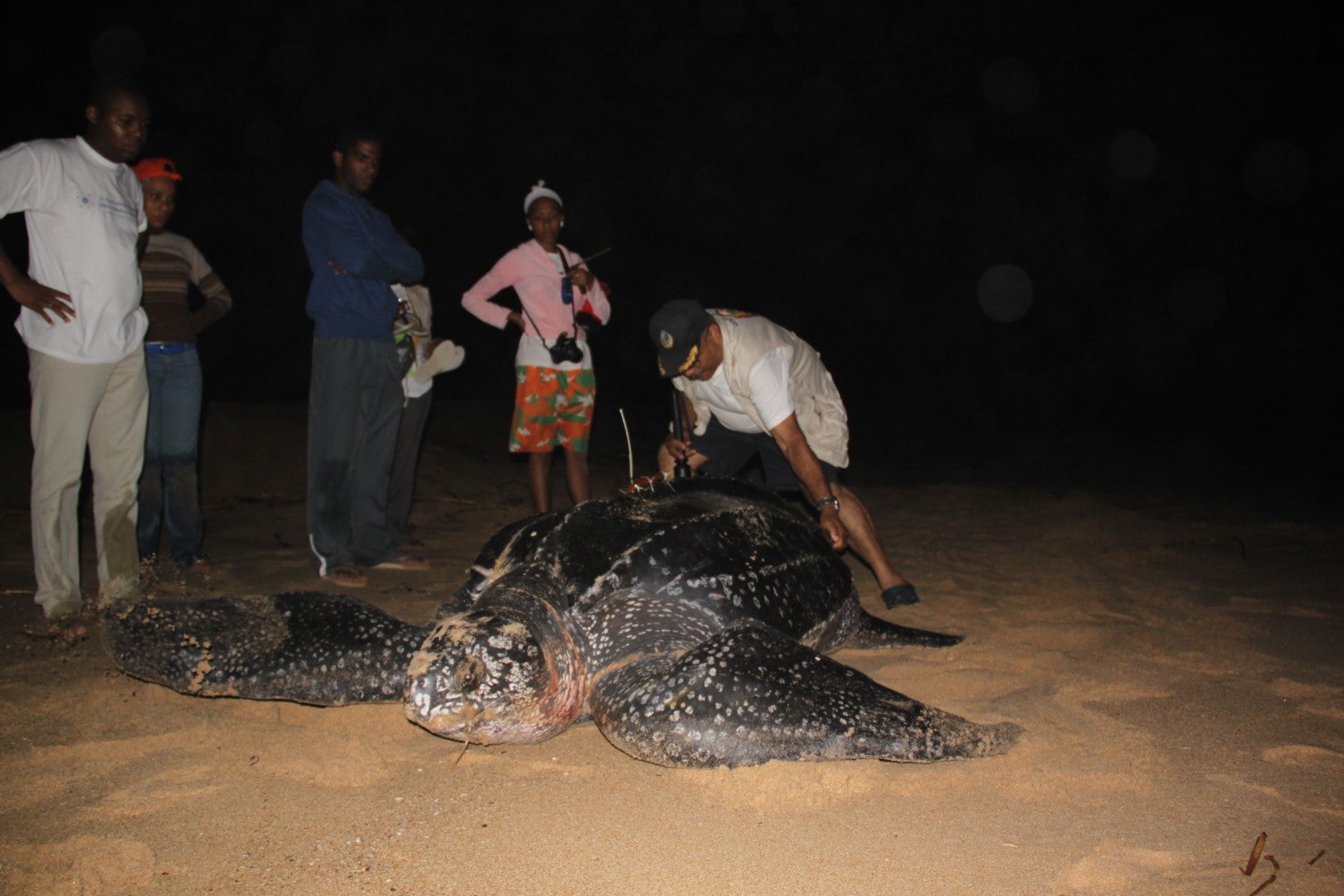Turtle conservation in Angola make strides despite challenges
Turtles that spawn on the Angolan coast continue to be in danger, as many citizens kill the animal species for consumption or trade

Your support helps us to tell the story
From reproductive rights to climate change to Big Tech, The Independent is on the ground when the story is developing. Whether it's investigating the financials of Elon Musk's pro-Trump PAC or producing our latest documentary, 'The A Word', which shines a light on the American women fighting for reproductive rights, we know how important it is to parse out the facts from the messaging.
At such a critical moment in US history, we need reporters on the ground. Your donation allows us to keep sending journalists to speak to both sides of the story.
The Independent is trusted by Americans across the entire political spectrum. And unlike many other quality news outlets, we choose not to lock Americans out of our reporting and analysis with paywalls. We believe quality journalism should be available to everyone, paid for by those who can afford it.
Your support makes all the difference.By Manuel David Sumbo for Wi.ao
Angola has a vast diversity of animal species, but unfortunately we still do not have a clear idea of their importance for life and for the ecosystem.
Turtles that spawn and nest along the Angolan coast continue to be in serious danger, not only due to recent climate change, but also because many citizens continue to kill the animal for consumption or trade .
Angola is party to several international conventions for the protection of this endangered species, so WI-AO made a trip to the province of Cuanza Sul, specifically in the Longa region, to learn about the Kitabanga Project, implemented by the Faculty of Sciences of the Universidade Agostinho Neto, which has been working on the study and conservation of sea turtles in the country.
For university professor and coordinator of the Kitabanga Project, Michel Morais, within the process of selecting conservation areas, Longa is one of the most important sites for turtle spawning on the Angolan coast.
Morais notes that one of the main threats to this species is artisanal fishing and that is why it is important to educate the population. It was in this sense that a commitment was made to the development of environmental education activities to raise community awareness and thus safeguard sea turtles.
Even so, he explained that in the last 5 years there has been an arrival of fishermen who came from other areas, which has created challenges in the protection area.
“Faced with this problem, there was a visible increase in dead sea turtles, an increase in fishermen and a decrease in the species,” he said.
Data from an official source revealed to WI-AO, point to the existence of at least 30 fishermen in the region, who received the approval of Soba (traditional leaders) to perform their duties, but for that they were guided to create a commission that could represent them.
“We have the association created, but it is not legalised for lack of financial means,” said the source.
They recognize that they came from other areas to camp in the coastal region of Longa, in search of better living conditions.
“We came from the municipality of Porto Amboim, we arrived here, we did everything and we want to be legal.”
Regarding unauthorised fishing, they claim that they have come across several boats coming from Luanda, Sumbe, Lobito, so the issue of dead turtles also surprises them.
The lack of supervision and education regarding the conservation of biodiversity is putting the presence of these species in Angola at risk.
The border guard that works in the coastal region of Longa, points out the lack of boats for patrolling and the reduced number of agents as the main factors of the weak inspection.
“The difficulties we have encountered in carrying out our work are the lack of a vessel, because turtles are normally slaughtered at night. It is during this period that the turtles spawn and it is also during this period that the fishermen take advantage of it,” he said.
It is worth remembering that the sea turtle is protected by law in Angola. Order nº 1489/21 of March 26th restricts occupation and fishing activity in the region of the mouth of the Longa river in favour of the conservation of sea turtles.
This article is reproduced here as part of the African Conservation Journalism Programme, funded in Angola, Botswana, Mozambique, and Zimbabwe by USAID’s VukaNow: Activity. Implemented by the international conservation organization Space for Giants, it aims to expand the reach of conservation and environmental journalism in Africa, and bring more African voices into the international conservation debate. Written articles from the Mozambican and Angolan cohorts are translated from Portuguese. Broadcast stories remain in the original language. Read the original story here
Join our commenting forum
Join thought-provoking conversations, follow other Independent readers and see their replies
Comments